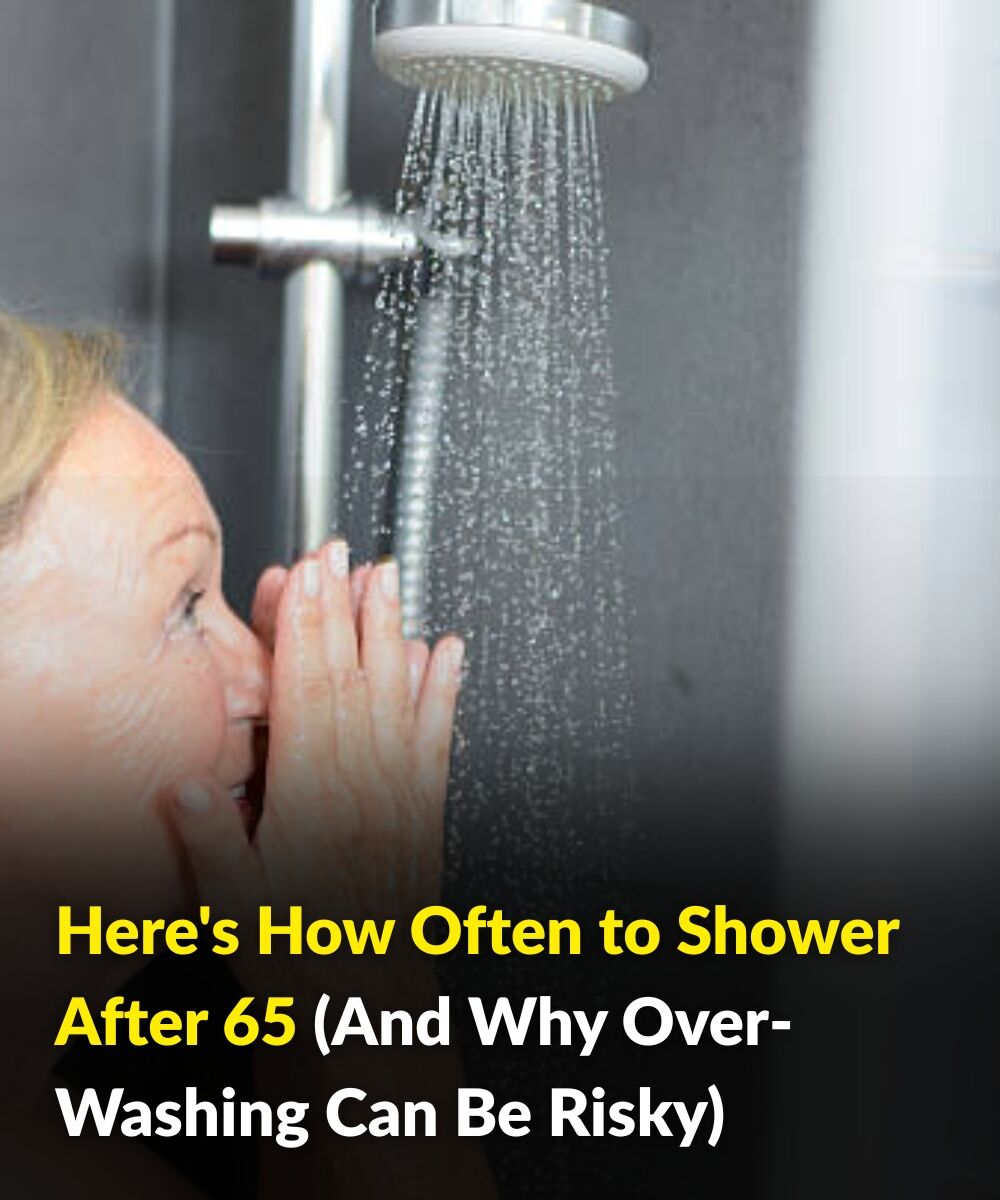Once you reach the age of 65, even the simplest daily habits should be reconsidered—especially ones we’ve always taken for granted, like taking a shower. While most people view showering as a harmless, even refreshing part of daily hygiene, health experts now suggest that over-washing, particularly in older adults, can actually cause more harm than good. You might find it hard to believe, but if you’re over 65, you may not need to shower every single day.

In fact, doing so could be damaging your skin in ways you don’t realize. As we age, our bodies go through many changes, and our skin is no exception. The skin naturally loses some of its protective components like collagen, elastin, and sebum—three crucial elements that help keep it firm, elastic, and properly moisturized. As these substances decrease with age, the skin barrier becomes thinner, less resilient, and more sensitive to external irritants.
Think of your skin as a protective shield, much like a knight’s armor. When you’re young, it’s strong and nearly impenetrable. But over the years, that armor starts to wear down, leaving the body more vulnerable to outside stressors like pollution, cold weather, harsh chemicals, and even water and soap. Ironically, one of the things we think of as beneficial—showering—can become an unexpected culprit. Hot water and harsh soaps strip the skin of its natural oils, which are essential for maintaining its health.
For people over 65, this can lead to uncomfortable symptoms like dryness, itching, tightness, redness, and in some cases, even minor skin infections. Additionally, frequent washing can disturb the skin’s microbiome—a complex network of beneficial bacteria that plays a vital role in protecting us from harmful pathogens. Once this balance is disrupted, the skin becomes even more vulnerable to irritation and infection. Because of these factors, dermatologists and geriatric care professionals recommend that older adults limit their showers to two or three times per week. This reduced frequency is usually enough to maintain proper hygiene while preserving the skin’s moisture and structural integrity. It’s not about neglecting cleanliness but about being strategic and thoughtful.
In fact, this practice is already widely accepted in healthcare settings where skin health in the elderly is a priority. Just like you wouldn’t wash a valuable antique every day, mature skin benefits from a gentler touch and less frequent exposure to water and cleansing agents. When you do shower, following the right routine makes a big difference. Start by keeping the water temperature lukewarm rather than hot, which helps prevent the skin from drying out. Use a mild, moisturizing soap or a soap-free cleanser that’s specially formulated for sensitive or aging skin. Avoid long showers; five minutes is usually sufficient. Once you step out of the shower, pat your skin dry with a soft towel instead of rubbing it, which can cause irritation. And most importantly, apply a rich, nourishing moisturizer immediately after drying off to lock in hydration and help restore your skin’s protective barrier. Taking care of your skin, especially as you age, is about more than just aesthetics—it’s a key part of maintaining overall health and comfort. Adjusting your hygiene routine to fit your body’s evolving needs doesn’t mean you’re giving up on cleanliness. On the contrary, it means you’re paying attention to what your body truly needs and acting with intention. After the age of 65, your skin becomes more delicate and requires a more careful, informed approach to care. By showering less frequently, using gentle products, and making moisturizing a regular habit, you’re not only preserving the health of your skin—you’re also embracing a self-care routine that’s aligned with this new stage of life. Making these small adjustments can have a lasting impact, keeping your skin comfortable, resilient, and protected for years to come.





